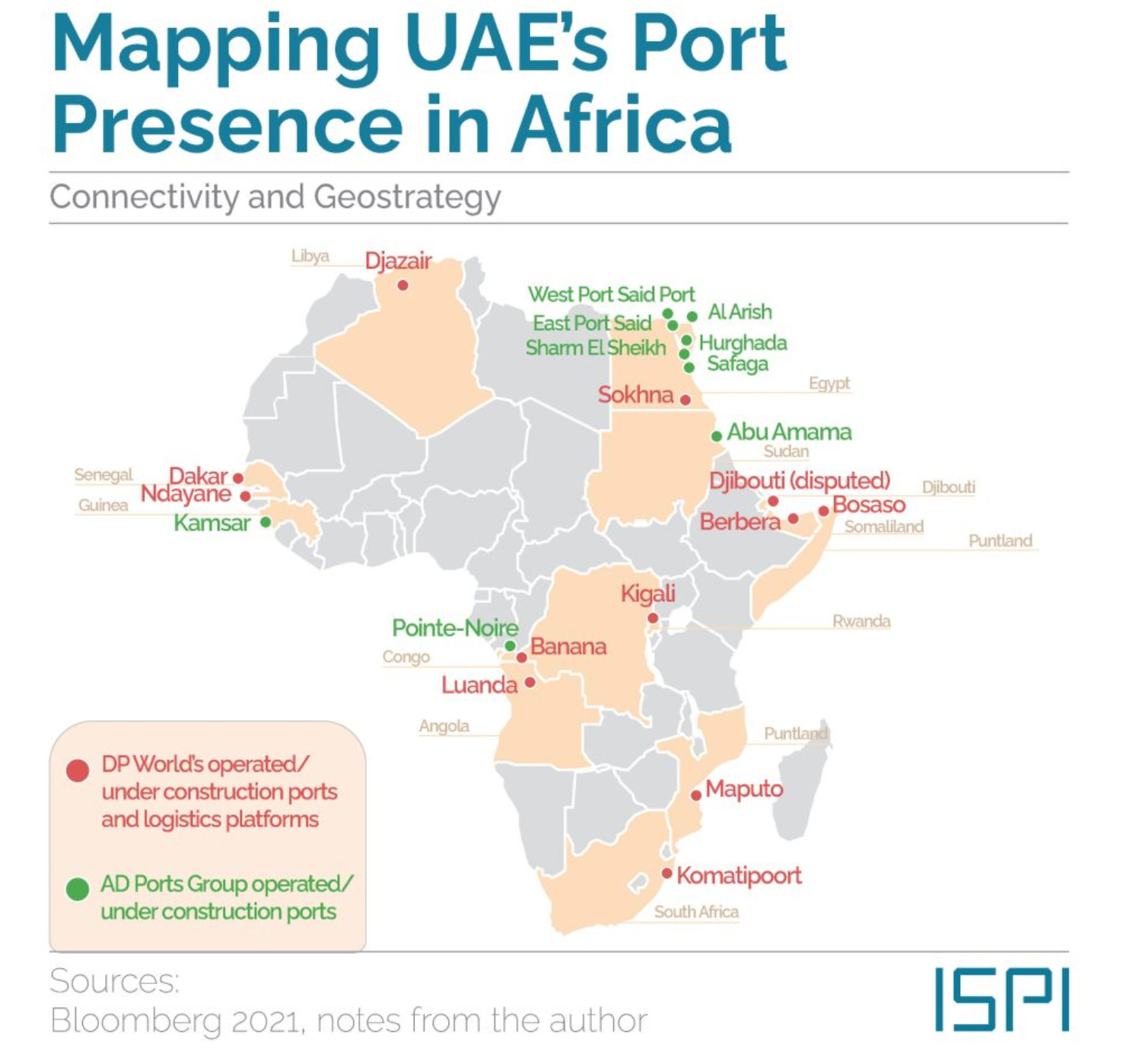56 UAE -United Arab Emirates
56.1 UAE in Africa
Opalo
In 2023 the United Arab Emirates (UAE) emerged as the largest source of foreign direct investment in Africa — from scooping up agricultural land, to ports and logistics, to climate finance. The UAE also cemented its role as a nefarious geopolitical actor in the region. For example, it is helping fuel murderous conflicts in Libya and Sudan — with spillover effects in the wider Sahel and the Horn.

The example of the UAE is illustrative of the future of African relations with Gulf States. On the one hand, there’s enormous potential for Gulf states flush with cash to park some it as investments in African economies — from PPP infrastructure projects, to equity plays, to concessional loans, to agriculture, to transformational investments in schools and hospitals.
On the other hand, increasing interest from Gulf states in the region bring important risks. Like in Sudan, Libya, and Somalia, they can be a source of insecurity and political instability. Similar to European countries like France, the United Kingdom, and Switzerland, the Gulf’s emerging status as a safe haven for ill-gotten wealth is a corrupting influence on complacent African ruling elites. Many politically exposed individuals now store their stolen wealth in Gulf property, domicile secretive corruption-enabling firms there, and launder their cash through Gulf banks. It is no wonder the Gulf is the new hub for smuggling precious metals out of Africa.
The other unwelcome development this year was African leaders’ heightened appetite for cheap labor “exports” to the Gulf. This sort of labor policy betrays a generalized unwillingness to create export-promoting jobs in the region, and fits within the broader regional pattern of a reflexive inability to invest in domestic value addition and economies that work for Africans.
Gulf cash — especially from the UAE and Saudi Arabia — can fill important gaps left by dwindling Chinese investments in African states.
The UAE’s DP World has the potential to increase the efficiency of the region’s transportation and logistics networks. There is an unfunded $100b infrastructure need in the region that could benefit from Saudi investment appetite. And, if done well, there is potential for agricultural investments to improve productivity and create jobs in agro-processing. Ultimately, successful engagement with the Gulf will hinge on African governing elites’ ability to channel foreign cash towards job-creating investments instead of always falling for easy side payments as outsiders pillage their countries’ resources. Unfortunately, on this score only Rwanda appears to be playing its cards right so far.